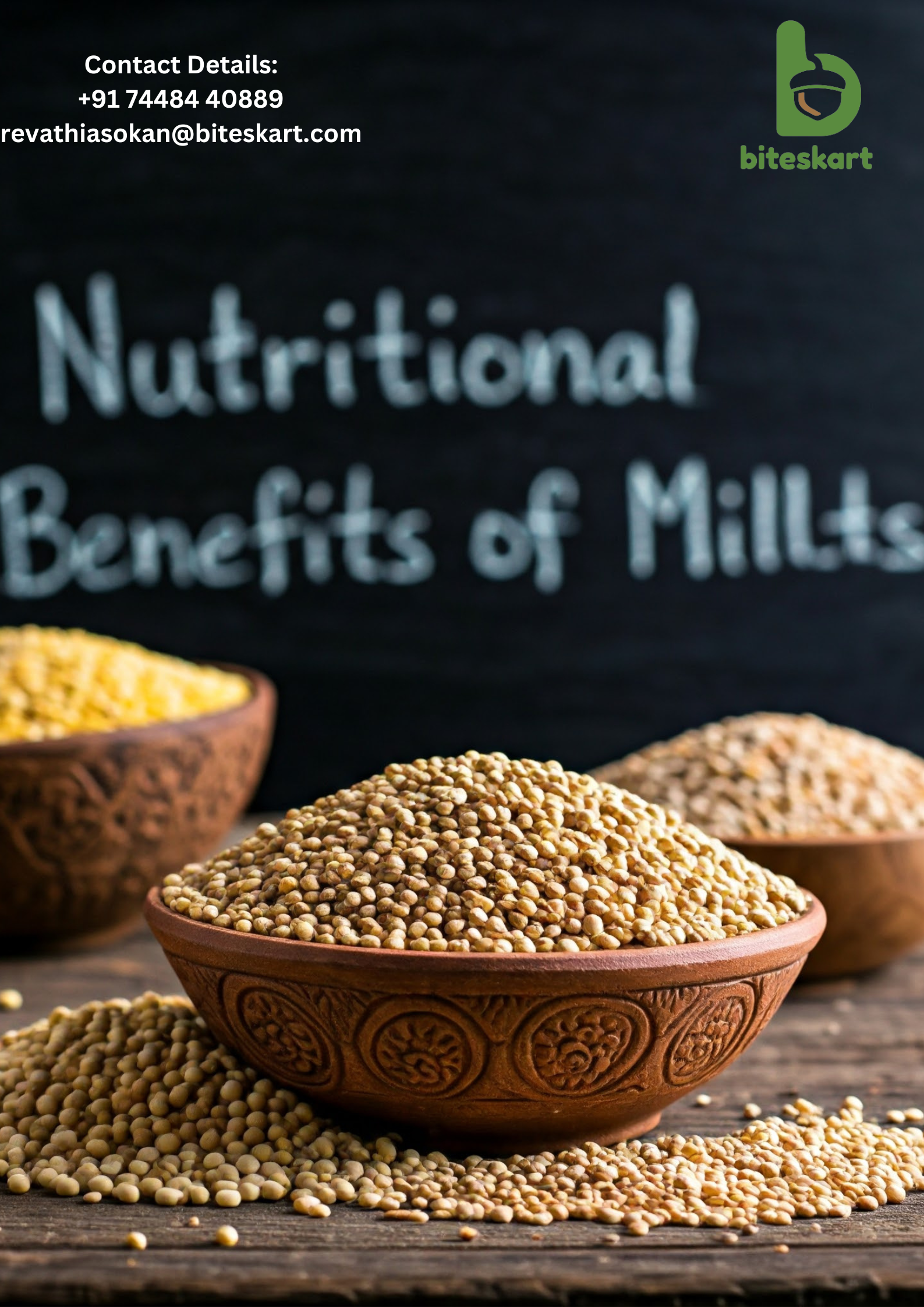- You have no items in your shopping cart
- Subtotal: ₹0.00
Did you know that your gut health influences everything from digestion to immunity and even mental well-being? Millets, often termed ‘ancient superfoods,’ are scientifically proven to nurture your gut, thanks to their high fiber and prebiotic content. Let’s explore how these tiny grains make a big difference!”
The Science Behind Millets and Digestion
High Fiber Content:
Millets are rich in both soluble and insoluble dietary fiber.
Soluble Fiber:
Forms a gel-like substance in the stomach, slowing digestion and allowing better nutrient absorption. It also feeds gut bacteria, producing short-chain fatty acids (SCFAs) that enhance gut health.
Insoluble Fiber:
Adds bulk to stool, ensuring smooth bowel movements and reducing constipation.
Prebiotic Effects:
Millets contain resistant starch and non-digestible carbohydrates, which act as prebiotics, feeding beneficial gut bacteria like Lactobacillus and Bifidobacterium.
A healthy microbiome reduces inflammation, improves nutrient absorption, and strengthens the gut lining, preventing conditions like leaky gut syndrome.
Gluten-Free and Gut-Friendly:
For individuals with gluten intolerance or celiac disease, millets provide a safe, natural, and non-allergenic alternative to wheat.
Their low glycemic index and non-acidic nature also make them gentle on the stomach, reducing risks of acid reflux or gastritis.
Role in Gastrointestinal Health:
Studies indicate that regular consumption of millets can reduce the risk of diverticular disease, irritable bowel syndrome (IBS), and other gastrointestinal disorders due to their high fiber content and anti-inflammatory properties.
Top Millets for Digestive Health
Foxtail Millet (Setaria italica):
Rich in insoluble fiber, foxtail millet supports the cleansing of the digestive tract.
It has anti-inflammatory properties that soothe gut irritation and promote healing.
Barnyard Millet (Echinochloa spp.):
Contains both soluble and insoluble fibers, aiding in regulating bowel movements and reducing bloating.
Its antioxidant properties combat oxidative stress in the gut lining.
Sorghum (Jowar):
Packed with resistant starch and polyphenols, sorghum enhances gut microbiota diversity, boosting overall digestive function.
Finger Millet (Ragi):
Easy to digest and rich in amino acids like tryptophan, which aid in calming the gut and reducing acid build-up.
Little Millet (Panicum sumatrense):
A perfect low-carb option for managing gut health while preventing indigestion or heaviness.
Scientific Evidence on Millets and Gut Health
A study published in the Journal of Food Science and Technology highlights how millet-based diets significantly improve stool bulk and frequency, benefiting individuals with chronic constipation.
Research from the International Journal of Food Sciences and Nutrition supports the prebiotic role of millets, showing improved gut microbiota diversity after regular millet consumption.
Millets have been linked to lower markers of gut inflammation and oxidative stress, as per findings in the Journal of Nutritional Biochemistry.
How to Incorporate Millets for Digestive Wellness
Breakfast:
Start your day with millet porridge or a fermented millet dosa, both rich in probiotics and prebiotics for a gut-friendly kickstart.
Lunch:
Replace refined rice with cooked foxtail millet or barnyard millet in your meals to boost fiber intake.
Snacks:
Opt for roasted millet snacks or sorghum-based crackers for a healthy, gut-friendly munch.
Dinner:
End the day with light, easily digestible millet khichdi or a warm ragi malt.
Ready to transform your gut health with the power of science-backed nutrition? Explore our premium millet-based recipes, meal plans, and products designed for a happier, healthier gut.
biteskart.com

